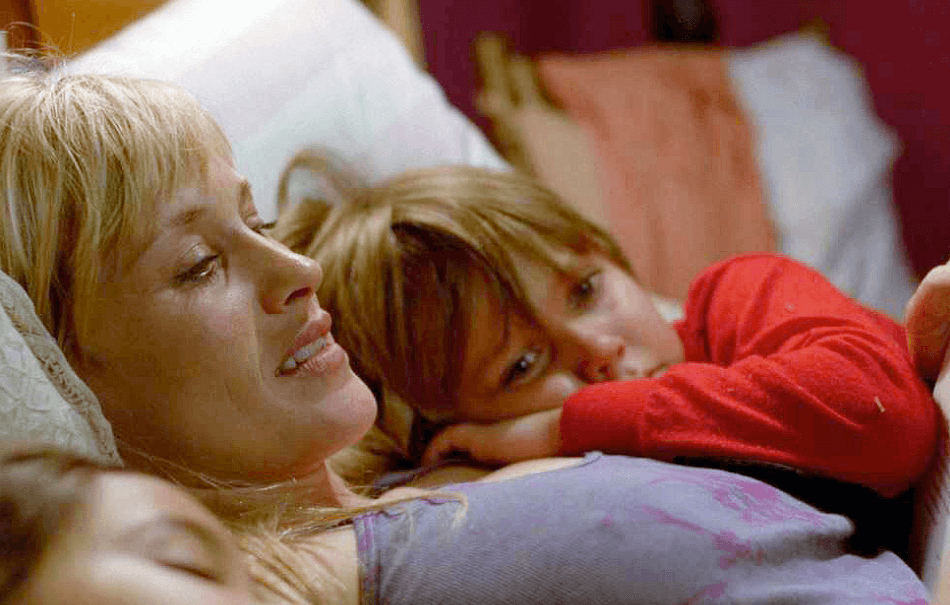On Boyhood and Motherhood: What It Means to Be a Single Mom


It’s been almost 50 years since Daniel Patrick Moynihan, a sociologist and later senator from New York, released the Moynihan Report, which, among other things, not only emphasized the importance of intact nuclear families, but also pathologized those headed by single mothers. Though Moynihan’s study focused exclusively on African-American families and was (not just in retrospect, but also clearly at the time) the kind of “social science” that has been used over and over again to reinforce racial and ethnic stereotypes, the main idea behind it—that the combination of an absent father and a dominant mother will lead to the corruption of children, particularly boys—is one that has had lasting effects culture-wide. Single motherhood—whether by choice or not—is thought to be the surest pathway to a degraded family unit and, eventually, a degraded society. Politicans and the media have lashed out even at fictional portrayals of single motherhood (most notably at the television show Murphy Brown), and common consensus has been to blame single mothers for everything from an increase in people on welfare to horrific acts of violence (see: Adam Lanza).
But now that a quarter of American families are headed by single mothers—more than double the number in 1960—it would seem that we are long overdue for a more compassionate look at what it means to be a single mother—the trials and tribulations, yes, but also the potential for joy and, most importantly, normalcy. Because to be a single mother—be it through divorce, widowhood, or just how it’s always been—is increasingly common, even though corresponding realistic portrayals of families headed by single women aren’t. Murphy Brown, after all, had the benefits of in-home help as well as a huge salary, but most single mothers earn far less than their married counterparts and would only be able to dream of a live-in nanny rather than afford one. While there have been some excellent documentaries on the subject, most recently Paycheck to Paycheck), it is rare to see an honest look at the sacrifices made and the pleasures attained by families headed by women and the choices—both good and bad—that those women make along the way.
Richard Linklater’s Boyhood has been receiving no small amount of attention since it was first screened at Sundance earlier this year. Shot over a 39-day period that was stretched out over 12 years, Boyhood follows the life of Mason (Ellar Coltrane) as he travels through his childhood and into young adulthood—as he lives his life. Most of the conversation (and not undeservedly) has centered around young Mason’s journey and the subtlety with which Linklater conveys the experience of growing up. Life, as it happens, is not simply a series of milestones, of first kisses, lost virginity, or the death of a loved one; sometimes the most important things, the things that make us who we are, are incidental to the larger narrative we might tell others and that they might expect. Life, as it happens, is banal and beautiful for it—spending a lazy afternoon staring into a summer sky might not be as memorable as moving to a new school, but it is still part of what makes us who we are.
But beyond a portrayal of a young man’s life, Boyhood is also the story of his divorced parents’ life. Not dissimilarly to the way in which few children ever know the real reasons behind their parents’ divorce, neither Mason nor viewers are privy to the decision making process that went into the separation of Mason Sr. (Ethan Hawke) and Olivia (Patricia Arquette). But the means don’t really matter, in this case, not when the end is a separated family and a life for Mason and his sister, Samantha (Lorelei Linklater). As Mason Sr., Hawke is excellent, playing the epitome of a “weekend dad.” He takes his kids bowling and to ball games, teaches his son to fish and shoot guns; he begins the film as a somewhat feckless, though well-meaning father (he’d disappeared to Alaska for a while to work, while Olivia remained in Texas with the kids), but winds up with a new family and evokes the kind of stability that Olivia probably wanted from him but never received. It is pretty close to impossible to hate Mason Sr.—even Olivia clearly still has some affection for him—but to pretend that it is in any way admirable to be the type of person who only becomes responsible on their own terms and in their own timeframe (growing kids and struggling wife be damned) would be ridiculous. Is it recognizable? Sure. But while Mason Sr. is busy finding himself and figuring out what kind of man he wants to be, there are mouths to feed and children to raise.
And that’s where Olivia comes in. Arquette is a revelation in this role, and not only because her work has a strength and urgency to it that is so evocative of the necessary presence of those qualities in single mothers, but also because the role itself is a revelation. Here is a woman who seems to have decided that it would be better to face the struggles of single motherhood than stay with her aimless husband, and goes back to school in order to make a better life for herself and her children and who then makes mistake after mistake as she moves forward with her life. What makes Olivia a revelatory character is that she is not a two-dimensional version of a very real type of person—she isn’t a noble martyr to her children and she isn’t an invincible superwoman who makes all the right decisions. In fact, she even half-jokes to Mason after he asks why she didn’t plan better how to pay for his college tuition, “Because I enjoy making poor decisions!” The thing is, though, there are so few times in the lives of many single mothers when they have the luxury of making good decisions—they just need to take some action, any action, for the good of their family.
Olivia makes many questionable-in-retrospect decisions. She marries an abusive alcoholic. She abruptly leaves that marriage, abandoning her step-kids, and forcing her kids to change schools mid-year. She marries another abusive alcoholic. She makes probably not the best financial decisions and seems about as far away from a comfortable retirement at the end of the film as she did at the beginning. If a social scientist wanted to dissect Olivia’s life choices, it would be pretty easy to condemn her for failing to provide the most stable of paths for her children and for choosing poorly (whatever that means, choice for single moms is mostly an illusion anyway) at almost every turn. But the reality is that Olivia is a messy, complex woman—one who gambled that it might be better for her kids to have a life with an imperfect surrogate father in a big house than just with her in a tiny apartment. This is the kind of choice-that-doesn’t-always-seem-like-a-choice that many single mothers make or don’t make all the time; this is the type of compromise that all parents make—not just single mothers, though they are the ones most often condemned for their decision-making. But more importantly than all the “bad” choices Olivia makes is the end result, namely, that she provides her children with a place that they can call home and a parent who is consistently there for them through thick and thin. And her children grow up into basically well-adjusted young adults, with no more or less ambition than could be thought of as normal, and a solid relationship with both their parents. This is the type of single mother that we so rarely hear about or see onscreen, one who fucks up all the time, but still manages to raise her children and build a life, imperfect and fraught with difficult choices though it may be.
Follow Kristin Iversen on twitter @kmiversen
You might also like 




















